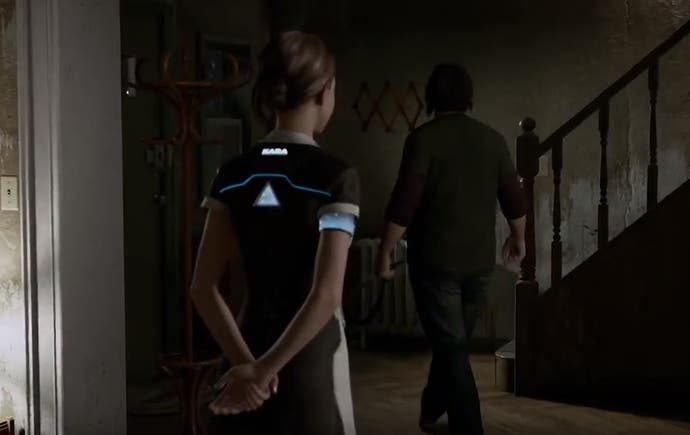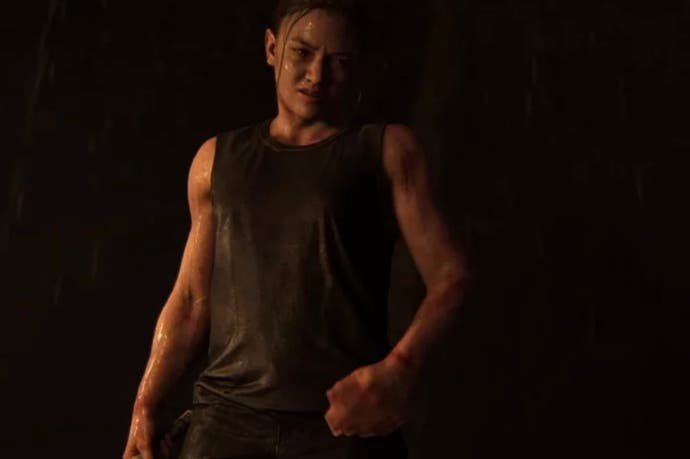Sony's Paris press conference suggests we need a new way to show difficult games
With great power comes great responsibility.
With great power, as they say in Spider-Man, comes great responsibility. Sony knows a thing or two about power. One of the brilliant things about PlayStation is that the people behind it acknowledge the power that games have. They are capable of taking games seriously. It sometimes seems, however, that they are struggling to do games justice when showing them off en masse. I guess everyone is, really. As the material games choose to work from gets broader, it gets harder to pile them all together at a press conference. Sony had many brilliant-looking games at its Paris Games Week press event yesterday, but my main takeaway, I think, is that events like this are no longer a particularly good way to showcase modern games in the first place.
Spider-Man was there, as it happens. Did you spot him? A minute or so of glorious four-colour action that landed just before a blast of domestic abuse. "Wooh, anybody else need a breather?" asked Peter Parker as his moment in the spotlight drew to a close. No breather was forthcoming. With no obvious warning, save the mournful strings that broadcast serious artistic intent, we were off to Detroit where David Cage's latest - not satisfied, right, with exploring the wholly untapped subject of what makes us truly human - has decided to clomp about inside the theme of child abuse.
One of the weird things you have to get your brain to accept in modern video games is that there is violence, and then there is violence. I am still getting my head around this, and I doubt I'm alone. For now, though, I think the reason Detroit's showing brought PlayStation's showcase to a halt so suddenly is that this is violence that is meant to shock and disturb. It is meant to ruin your day and make you think about the injustices of the world. Will David Cage pull any of that off with any success? I have my suspicions on this front, but that's not the point right now. The point is that he needs context for his game to do its job, otherwise the whole thing can't help but feel gratuitous. What he definitely doesn't need is an on-ramp that involves web-slinging, Far Cry 5's stunt planes and the tumbling, sparking delights of the candy-coloured racers of Onrush.

And this wasn't the last grinding of gears. Onwards, past God of War, past Horizon: Zero Dawn and past Shadow of the Colossus, each of which, on its own, would presumably have had a glorious impact, we get The Last of Us 2, present in the form of a cut-scene that begins with an attempted lynching and then features a sequence with a hammer that was clearly inspired by the famous bit in Misery. But how long does Misery have to build up to its equivalent moment? How much of its power, of its meaning, resides in the slow burn that lead to it? I have no doubt that in the finished game The Last of Us 2 will take similar pains to contextualise its horrors, but the context of a showcase is not the context of a 10-hour, 18-rated narrative game. It is the context of a gumball machine, where you spin the dial and you don't know what bizarre treat is coming your way next.
Except somebody did know. Somebody put together this show that people are meant to be able to watch without getting emotional whiplash. Somebody thought you could put Concrete Genie - a game which seems to tell a tale of the power of creativity itself as a bullied outcast fills an urban environment with glittering graffitied landscapes and glorious monsters - into the same hour that features a father marching his daughter upstairs to beat her.
This is what happens when you group games together with no more organising principle than the machine they are coming out on. Games are many different things now, which is wonderful, but it means that if you cludge them all into a tight space like this you are doing a disservice to the people who make them and to the people who play them. If I made Spider-Man, I wouldn't want the palate cleanser of Detroit, and if I made Detroit, I wouldn't want to have Spider-Man as my cheerful lead-in. Many of the games Sony showed yesterday look brilliant - reaching and ambitious and exciting and even powerful. But I don't know who you have to be to be able to sit through a presentation like that, and I can't really see who benefits from it.

